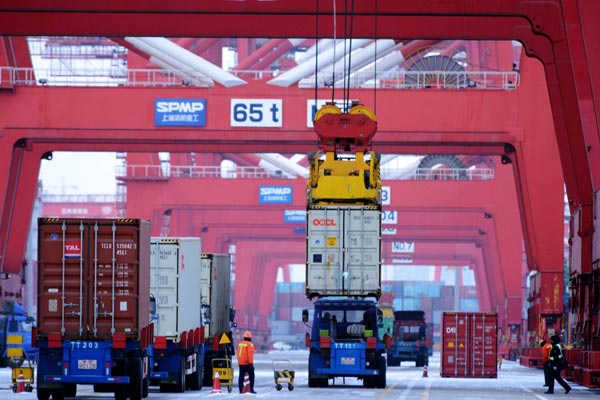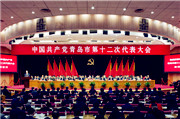Global trade challenges remain despite last year's upswing
( China Daily )
Updated: 2018-01-18
|
|||||||||
 |
|
A ship loads containers at a terminal in Qingdao, Shandong province. [Photo/China Daily] |
Customs spokesman Huang Songping attributed the increase in trade to the stable growth of the Chinese economy and the global economic recovery.
Not only China, but also the other major economies saw growth in trade last year. But that does not mean the potential risks threatening global trade have disappeared.
The rise of anti-globalization and protectionist sentiment in some countries and regions has caused trade frictions. And the United States under the leadership of Donald Trump has turned from being a leader and supporter of globalization and free trade to a destroyer of the multilateral trade systems and order.
The possible negative influence that the Trump administration's "America first" principle might cause to world trade should not be underestimated. The Trump administration thinks all its trade partners take advantage of the US, and none of the multilateral trade mechanism that the US is part of treats the US fairly. Worse, it regards almost all of its major trade partners - Germany, China and Japan - as currency manipulators.
Since the US has exited the Paris climate treaty, it would not be a surprise if it withdraws its membership from the World Trade Organization, as Trump once threatened, which will deal a heavy blow to the recovery of global trade and world economy.
The tightening of the currencies of the US, the European Union and Japan will affect international trade, creating uncertainties and increasing the odds of trade disputes and frictions.
Moreover, the WTO urgently needs to plug its institutional loopholes, as its rules are being abused by its members, aggravating conflicts. The WTO rules should be amended so as to become bedrocks for free trade, not tools to wage trade wars.
Although many countries say they are against protectionism, they are very likely to be involved, intentionally or unintentionally, in complicated trade wars, in which their own national interests will automatically come before the concerns of free trade.
In this sense, the rosy trade figures for last year cannot eliminate the possibility of challenges ahead.




